
Savvy Travel Advice

Thomas Cook History: The Tale of the Father of Modern Tourism
Last updated: March 21, 2021 - Written by Jessica Norah 42 Comments
Do you know who Thomas Cook was and what contribution he made to the history of travel? Perhaps you have heard the name, seen it on the travel agencies that still carry his name, or maybe you’ve even taken a Thomas Cook tour. But my guess is that, like me, you don’t know too much about the man or how he fits into the history of travel.
Thomas Cook was a passionate man who was born into a world where most working class people worked long 6-day weeks and never traveled more than 20 miles from their home towns. Thomas would begin work at age 10, laboring in a vegetable garden for 1 penny per day; but with a lot of determination and hard work, this working class man would eventually build one of the largest travel companies in the world.
This post is dedicated to the memory of Thomas Cook and his role in history and will give you a good overview of Thomas the man, Thomas the travel pioneer, and a glimpse of what it was like to travel in the Victorian age.

Table of Contents:
Who was Thomas Cook?
Thomas Cook was born in 1808 in the small town of Melbourne, England but would be best known for his time living in Leicester. He would finish his schooling at age 10 to begin working, often for only a penny a day, to help support his family.
Throughout his life, Thomas Cook would work as a Baptist preacher, carpenter, furniture maker, printer, publisher, political advocate, and travel organizer. As a Baptist preacher, he would walk thousands of miles and earned so little that he often worked in the dark to conserve candles and oil.
After seeing the effects of drunkenness at an early age, Cook believed that alcohol abuse was one of the major roots of the many social problems in the Victoria era and would spend much of his time and talents supporting the Temperance movement in England for the rest of his life. In fact, Cook’s beginnings as a travel organizer would come about because of his temperance beliefs.
In 1841, he would arrange for a special train to take over 500 people from Leicester to Loughborough to attend a temperance meeting. For 1 shilling, passengers got round trip train travel, band entertainment, afternoon tea, and food. Not a bad deal!
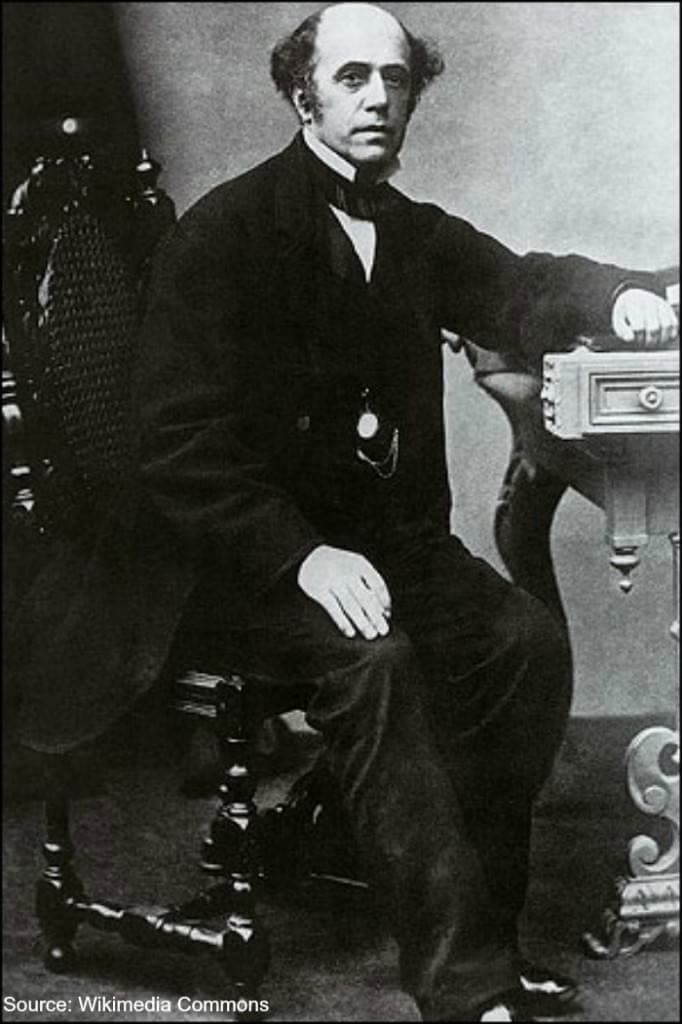
T he Birth of Thomas Cook & Son
Then in 1845, he would organize his first railway excursion for profit, and the following year he would begin offering trips outside England to Scotland, a country that captivated Cook and would remain one of his favorite destinations. For many of his early passengers, this was their first time aboard a train and the furthest distance they’d ever traveled from their home.
His trips kept getting bigger and in 1851, Thomas got the chance to organize railway travel and travel accommodations for people from the provinces to travel to London to attend the Great Exhibition orchestrated by Prince Albert. Thomas would transport over 150,000 people to London during the 6 months of the exhibition. This was one of the largest events in England and one of the largest movements of people within Britain!
Up until this point in time, most people in the provinces would be unlikely to travel to a town 20 miles away, let alone to the city of London. It must have been quite a shock for many people, who likely had never attended an event bigger than a county agricultural fair, to witness the Great Exhibition, where many of the greatest industrial inventions of the time were on display, in the bustling capital city of London.
His early tours would be marketed towards the working class, but later his company would go on to escort more middle class passengers and even organize travel for royalty, the military, and other important figures given his increasing reputation for being able to efficiently organize travel.
Interestingly, a large percentage of Cook’s travelers would be single or unescorted women who likely would not have been able to travel on their own (remember these are the days of Gone with the Wind ), but being part of an escorted tour provided them with both protection and independence.
Cook would rapidly expand operations, escorting tours throughout Europe, North America, and even led the first commercial tour around the world. But perhaps no destination was more sacred to Thomas than his tours to Egypt and the Middle East. Here Thomas could witness firsthand the Biblical lands he had read and preached about all his life, and spending time in the Holy Land was truly a realization of many of his dreams as a young man.
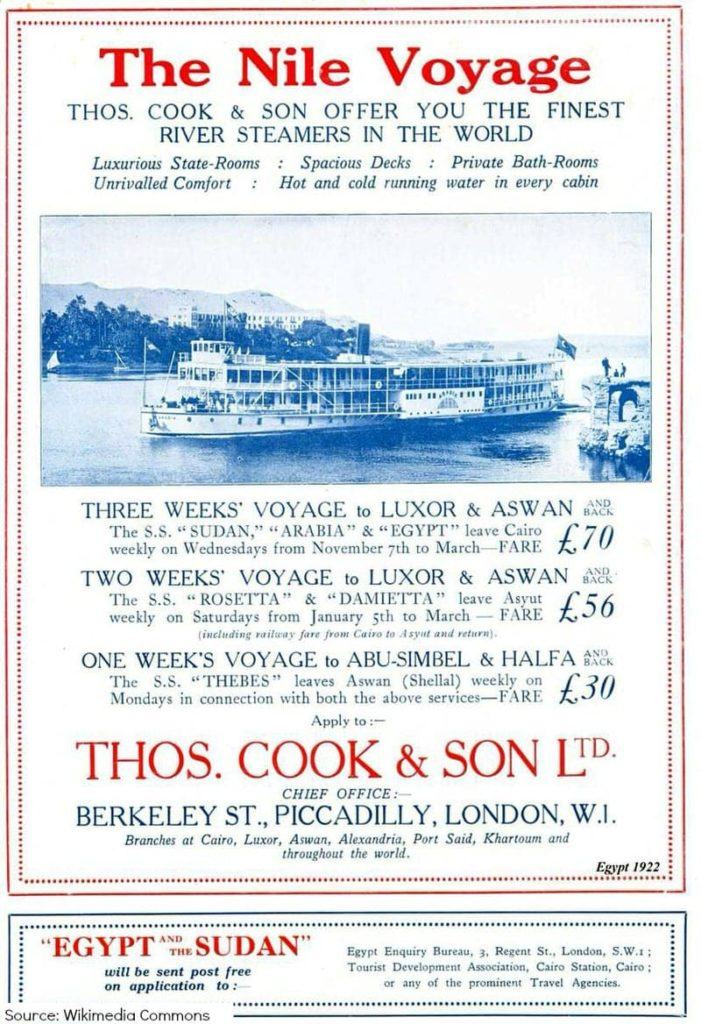
A Man with Many Personal Obstacles and Struggles
Although Thomas Cook & Son would thrive and go on to become one of the largest travel agencies in the world, things did not work out as well for Cook in his personal life. Thomas’ father died when he was very young as did his stepfather, and young Thomas was left to be raised by his widowed mother.
As an adult, he would suffer the tragic sudden death of his only daughter Annie—a young woman on the cusp of marriage—who shared a close relationship with her parents. Thomas’ wife would suffer a long period of ill health following her daughter’s death, eventually dying and leaving Thomas alone with his own failing health that left him almost blind.
In his later years, he had a very strained relationship with his only son and business partner John Mason Cook. Thomas felt that he was being pushed aside in his own company and eventually John Mason Cook would take over all operations from his father. The father and son never truly reconciled and spent very little time together towards the end of his life.
While Thomas’ poor health and eyesight made it increasingly difficult, he continued to be active in travel and temperance activities until near the end of his life. His son would continue to expand the travel business.
What was it like to Travel During the Victorian Era?
Thomas lived during the reign of Queen Victoria—the Victorian era—and while romantic imaginings of spending time aboard the famous Oriental Express, sailing on luxury White Star Line steamships, and staying in grand palatial hotels may have been partially true of the wealthiest of travelers, these are far from the accommodations you could expect as a working class or middle class traveler.
Before widespread railway transport, the stagecoach reigned as the quickest way to get around and only the wealthy could afford such conveniences. So poorer people often walked, hitched rides on the back of wagons and carts, or, if lucky, rode a horse or donkey. In the early days of railway travel, third class train accommodations were open wagons, some without seats, where passengers would have to worry about the wind, sun, dust, locomotive smoke, and glowing hot embers.
During Cook’s travels—particularly his early trips—you would need to worry about germs and disease as very little was understood about germs at the time and the lack of widespread refrigeration and hot water heightened the chances of disease. Restaurants, flush toilets, and even running water were not staples in Great Britain, let alone the rest of the world. Communication was slow and done primarily by postal mail, sometimes taking weeks to confirm reservations or transmit a message back home.
However, things were not all bad. During Thomas’s life so much would change that would make travel faster, cheaper, and more comfortable than ever before. Improvements in the postal service, use of the steam engine, opening of the Suez canal, and the great expansion of the railways would make it possible for Thomas Cook to accomplish things that would not have been possible a generation before him.
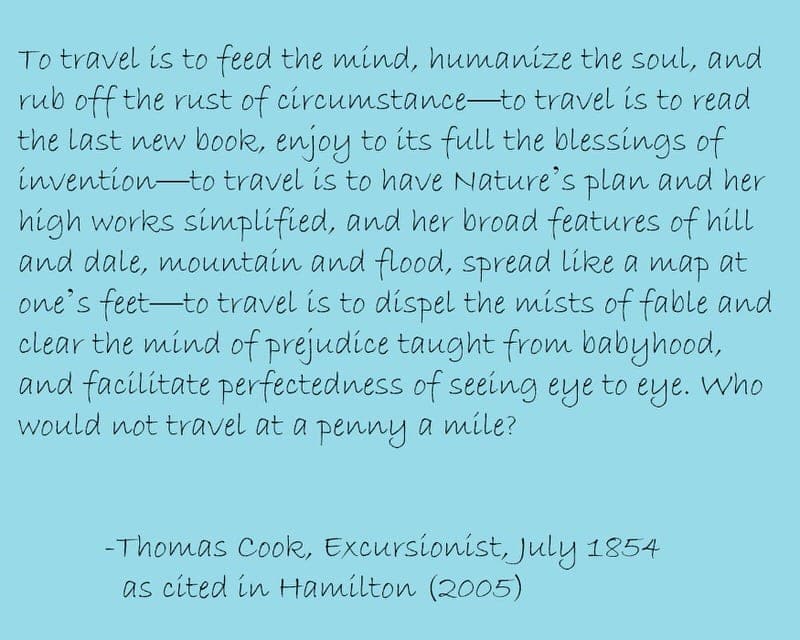
Thomas Cook’s tours, with their discounted organized group rates, made it possible for a lot of working and middle class people to travel for the first time. Cook believed that travel could help educate and enlighten people who, like him, often did not have a proper school education, eliminate prejudices and bigotry, and be a healthy leisure alternative to visiting pubs, gambling halls, and whorehouses.
However, these new travel opportunities for the lower classes was not something that was widely appreciated by many of those in the upper classes of society. Until the nineteenth century, popular tourist destinations were almost exclusively the playground of the wealthy who could afford the time away and expensive cost of travel. The upper classes did not want to mix with the lower classes when traveling.
As Thomas Cook and others began to offer affordable excursion tours to popular destinations such as English country homes (e.g., Chatsworth House), the Rhine River valley, the French Riviera, Egyptian pyramids, and the Swiss Alps, wealthy travelers complained about what they saw as a bunch of uncouth, uneducated common people invading their exclusive travel paradises.
They criticized Thomas Cook and the excursion travelers, and this criticism likely wounded Thomas, who although he strongly believed in the right for all people to be able to travel, he also strived to be accepted by the upper echelons of society. Despite his success, he never was accepted by the upper classes as he was not of gentle birth, but was a working man and a Baptist in a country still largely controlled by wealthy Anglicans.
However, despite all the criticism, the demand for discounted organized travel would only continue to increase. The number of travelers from London who crossed the Channel to continental Europe rose from 165,000 in 1850 to 951,000 by 1899. Travel agencies and organized travel were here to stay.
Why Thomas Cook was a Travel Pioneer
Thomas Cook was a travel pioneer who built one of the largest travel businesses in the world, a business that started very humbly as a way to transport travelers to nearby temperance meetings. Thomas was able to “organize travel as it was never organized before” and with the help of the railways and the steam engine, he was able to do it on a scale that would have never before been possible.
Although not the first to come up with most of the ideas, Thomas would make things like travel vouchers, traveler’s cheques, and printed guidebooks common and widespread. Cook would use his talents as a printer to print travel advertisements, bulletins, magazines, guidebooks, and train timetables. In fact, Thomas Cook Continental Timetables would be published from 1873 to 2013 (last edition was published in August 2013) and were for many decades considered the bible for European train travelers.
His religious fervor would make him seek out exotic locations such as the Middle East and his determination would lead to Thomas Cook & Son opening offices around the world. Perhaps his greatest legacy is that he helped make it possible for a new group of people to engage in leisure travel. Cook understood well the drudgery of hard work and trying to support oneself on a meager income, and his tours provided working and lower middle class people the opportunity to explore a world they could have only have read about otherwise.
The Thomas Cook & Son name continued to exist as a travel company, offering travel tours until 2019. The company traded for 178 years. But it had not been a family-run business by the Cook family since the 1920’s when Thomas Cook’s grandsons, Frank and Ernest, sold the company to the Belgian Compagnie Internationale des Wagons-Lits et des Grands Express Européens, operators of most of Europe’s luxury sleeping cars, including the Orient Express .
In the 1940’s it would become state-owned by the British Transport Holding Company. It would continue to change hands over the years. In 2001, it would become owned solely by C&N Touristic AG, one of Germany’s largest travel groups, who renamed the company, Thomas Cook AG.
Thomas Cook became one of the world’s largest travel agencies and the oldest in the UK. Its famous slogan developed by advertising expert Michael Hennessy: “Don’t just book it….Thomas Cook it” became well-known around the world.

The Bankruptcy and Closure of the Thomas Cook Travel Agency in 2019
Sadly, the travel agency and airline that carried the Thomas Cook named declared bankruptcy in September 2019, leaving about 150,000 British travelers “stranded” all over the world (as well as a number of other nationalities). Perhaps the most devastating effect has been the immediate loss of thousands of jobs for people in the UK and abroad.
The travel agency, however, was properly insured and protected and most of those who booked a trip can apply for a refund, and those left “stranded” on trips were repatriated by the UK. It was the largest repatriation effort since World War 2.
In October 2019, it was announced that all the Thomas Cook travel agency offices in UK will be taken over by Hays Travel and rebranded under their name. Most of the reopened offices are being staffed by former Thomas Cook employees. Hays Travel is now the largest independent travel agency in the UK, and you can read more about them here .
In 2020, the COVID-19 pandemic wreaked havoc on all sectors of the global travel industry and Hays Travel was forced to close its travel offices in the UK for a large part of the year. Many of the former UK Thomas Cook offices have now been permanently shuttered and many of the employees who had been rehired were sadly made redundant. You can read more about that here .
Although the future of the Thomas Cook name in travel may be uncertain, I would be very surprised if the name does not continue to be associated in some way with a travel agency.
In fact, although all the UK based companies have stopped trading, some Thomas Cook owned resorted, like Cook’s Club are still operating. Some of its subsidiaries in some other countries are still trading as normal but are also in danger of closure.
What I Learned from Reading about Thomas Cook
Thomas Cook was a quite extraordinary self-made man. He had so many occupations and business ventures and so many setback and failures, even declaring bankruptcy at one point, but he was so persistent and never gave up. He was a passionate man who fought for his Baptist faith, beliefs in equality for all people, and for temperance.
In addition to being impressed by the determination and innovativeness of Thomas Cook himself, I was also quite intrigued in the ways that travel has changed and the ways it has not. We have come a long way since Thomas Cook escorted his first tour as we can travel so much lighter, faster, and more conveniently than would have seemed possible to Victorian age travelers who would accept unheated train cars, month-long ocean crossings, and hotels without hot water.
Cook, a teetotaler until his death, would likely be shocked by the tourism industry’s promotion of sun, sea and sex and the partying and drinking associated with many travel destinations. Indeed, many of these locations are the most popular destinations for British travelers on package holidays.
However, some things have not changed very much. Criticisms of organized travel remain with the notion that independent travel is better and people love to make the subjective “traveler” versus “tourist” distinction. There are also still locations that remain primarily the playgrounds of the wealthy although never like during the Victorian age. Travel remains class segregated as those who can afford to do so can fly in first class seats, dine in the finest restaurants aboard ships, and sleep in the best cabins with little need to spend much time with other class passengers.
One of the things that I found perhaps the most interesting was the destinations promoted by Thomas Cook still remain, with few exceptions, major tourist destinations today. The country house of Chatsworth House is one of the most notable country houses in England today and people are still flocking to the Scottish highlands, Paris, Rhine River Valley, Swiss Alps, Egypt, the ancient city of Petra, Australia, and most of the other destinations promoted by Thomas Cook in the 1800’s.
While things have changed in some ways beyond recognition, many of the world’s wonders and great destinations continue to awe visitors as they must have awed those first pioneer tourists led by Thomas Cook.
Want to Learn More about Thomas Cook and Victorian Age Travel?
Resources about Thomas Cook (I used these in writing this article) :
-Hamilton, Jill. (2005). Thomas Cook: The Holiday Maker . The History Press.
-Piers Brendon. (1991). Thomas Cook – 150 Years of Popular Tourism . Martin Secker & Warburg Ltd.
-Withey, Lynne. (1997). Grand Tours and Cook’s Tours – A History of Leisure Travel, 1750 to 1915 . William Morrow & Co. [This book focuses on a broader view of the history of travel including a lot of attention to Thomas Cook tours and their impact on tourism]
-A great Wikipedia link to some of Thomas Cook’s Traveler Handbooks: http://en.wikipedia.org/wiki/Cook%27s_Travellers_Handbooks
Another book related to Thomas Cook on my to-read list:
-Swinglehurst, Edmund. (1974). The Romantic Journey – The Story of Thomas Cook and Victorian Travel . Pica Editions.

So what do you think about Thomas Cook and the Victorian Age of Travel? If you are interested in another article on travel during the Victorian age, check out our post on t wo American women who race around the world in less than 80 days .
Share this Post!
There are 42 comments on this post.
Please scroll to the end to leave a comment
Baskin Post author
February 28, 2024 at 3:26 am
Wow, so fascinating to read about the history of Thomas Cook, the visionary behind modern tourism. I definitely learned a lot from this about how His legacy continues to shape travel and hospitality industries, very educational post!
Jessica & Laurence Norah Post author
February 28, 2024 at 10:20 am
Thanks for taking the time to comment and glad to hear you enjoyed our article on Thomas Cook. And yes his contributions to the travel industry can definitely still be seend today!
Best, Jessica
Chandra Gurung Post author
May 9, 2023 at 4:15 am
Very interesting post, thanks for the great travel History !!
May 13, 2023 at 8:06 am
Hi Chandra,
Glad you enjoyed our post on Thomas Cook, thanks for taking the time to comment!
Karim Post author
October 29, 2022 at 3:01 pm
Thanks for your blog post on Thomas Cook, very helpful, nice to read.
October 31, 2022 at 10:04 am
Thanks for taking the time to comment, glad you enjoyed our post on Thomas Cook and a bit of the history of the man and his company 😉
Jeanne Gisi Post author
May 24, 2022 at 1:06 pm
While cleaning out some boxes filled with mementos of my travels over the years, I came upon an Itinerary prepared by Thos. Cook & Son for a 6 week European trip in 1965 for my parents & I (I was 13)! It was so fascinating to see the level of detail for each stop, which included England, France, Italy, Spain & Germany; and the beautiful cover & fancy paper used to produce the itinerary. I went looking on the internet to see if they were still in existence & found your blog, which I found so informative about the founder & the many iterations the company had gone through. Probably the most amazing detail in this itinerary was discovering that for hotels in 4 different cities, train rides, rental car & private transport for the entire trip was shown at $328 per person! Astounding! Appreciated reading your historical information about this venerable company.
May 25, 2022 at 5:10 am
So glad you enjoyed our article on the history of Thomas Cook.
Oh, wow, that must be wonderful finding old treasures from your family travels. I love things like that. And yes a 6 week trip for $328 per person (about $3,000 per person in today’s money) would still be a good value today for all that was included for a 6-week trip. And it would have taken longer to put together an itinerary then as the travel agent would have needed to call or mail for inquiries and reservations rather than clicking buttons on a computer.
Yes, Thomas Cook has gone through a lot in recent years. Hays Travel purchased most of the Thomas Cook offices/stores and hired back a lot of the staff in 2019. But then of course the COVID-19 pandemic came soon after, and many of the stores have since re-closed and a number of people had to be let go. For example, our local travel store (in Bath, England) went from a Thomas Cook to a Hays Travel to being empty again in about a year’s time. It will be interesting to see what will happen with traditional travel agencies like this as international travel goes back to 2019 levels and if they will continue to flourish in the face of online competitors.
Ruth Deeks Post author
March 21, 2021 at 8:39 am
Very interesting. My parents who were Baptist missionaries in India had told me that Thomas Cook was a Baptist and gave a special rate to missionaries travelling by boat to and from India, the journey taking 5 weeks approx. I am talking about the 1930s to 1950s. What a shame the The Thomas Cook co. was sold out of the family and went bankrupt.
March 21, 2021 at 9:05 am
Glad you enjoyed our article on Thomas Cook and the history of his travel business. He is an interesting man combining his religion with travel.
Yes, it is sad that the Thomas Cook business went bankrupt. Sadly, the UK travel company which took over most of the Thomas Cook offices in the UK, Hays Travel, has now had to close many of these offices in 2020 due to the coronavirus. This has also sadly left many of the former Thomas Cook employees, many of which were then re-hired by Hays Travel, without a job again. It’s been a very tough couple of years for UK travel agents. Hopefully, 2021 will be a better year for them.
Uwingabire Faustine Post author
November 28, 2020 at 1:03 pm
Hello I was inspired by the theory of Thomas Cook, but wanted to know above all that why was he important in tourism industry?
November 29, 2020 at 7:05 am
Glad you enjoyed our post on Thomas Cook and learning about his life. Hopefully you found your answer about why Thomas Cook was important in the tourism industry from the article. But if not, I’d go back and read the “Why Thomas Cook was a Travel Pioneer” section as that covers a good summary of his achievements related to travel and his importance in the tourism industry.
If you have any further questions, please let me know!
Seba Campos Post author
July 30, 2020 at 6:49 pm
Hi! I am a tourism student from Argentina, I really liked your article and it was extremely revealing for me. I’m working on the Thomas Cook story.
Do you have any information about his family? Why did they decide to sell the company? Why did your son remove him from the company? Thank you so much!
August 1, 2020 at 5:28 am
Glad that you are finding my article helpful in writing your paper on Thomas Cook.
If you are looking for additional information, I’d recommend checking out one of the books about Thomas Cook such as this one by Jill Hamilton published in 2005. The books will give you more details and context than you’ll find online. You should be able to buy it online through Amazon or ebay.
The Thomas Cook company website used to have some good historical information but that information has all been removed since Thomas Cook closed in the UK.
Hope that helps, Jessica
Colin Post author
October 6, 2019 at 5:41 am
Hi Jessica, I was just searching about Thomas Cook after the recent bankruptcy as I was one of the people affected. Luckily for us, we were not on the tour and it was booked several months away, so it seems all will be well in terms of getting our money back. We also have plenty of time to rebook our holiday, so we are luckier than most.
What a great post and what a detailed history of Thomas Cook and his travel company. I have used Thomas Cook to book holidays for years and never knew anything about Thomas Cook, the man or his background. This was a very interesting read!
October 6, 2019 at 6:09 am
Sorry to hear that you were one of the people affected by the Thomas Cook bankruptcy and closure. But I am happy to hear that it sounds like you will receive a full refund for your booked trip and will have plenty of time to rebook your holiday.
So glad you enjoyed our post. Yes, the history of Thomas Cook as a person is very interesting and he was definitely a pioneer in the field of tourism. I am sure the Cook name will continue to be associated with a travel company in one way or another in the future since it is so well recognized worldwide.
Happy travels, Jessica
Eran Post author
December 26, 2018 at 10:21 pm
Hi, Great post! Towards the end of it you mention that a lot of things haven’t changed in travel. However, I think in recent years, with the rise of low-cost flights, now tourism is more reachable to all segments than ever before…
December 27, 2018 at 3:37 am
Hi Eran, Yes, it is amazing how much hasn’t changed and in other ways how much things have changed since the time of Thomas Cook!
I do think that low cost travel has enabled more people to travel, but in more recent times it is probably more due to better economic conditions in countries than things like budget airlines, as we are seeing huge increases in the number of travelers from places like India, China, and Latin America. Travel for leisure is commonplace in many countries, but still remains something for those with money as much of the world’s population can not often afford to travel internationally for leisure. According to Hans Rosling, it is estimated that only the richest 1 billion people in the world live where they can easily afford airplane tickets, and 2 billion people spend less than $2 a day.
Interesting to look at travel from a global perspective as it can be easy for Western people to take it for granted.
Alok kumar mandal Post author
August 17, 2018 at 8:15 am
very interesting and useful facts about Mr. Cook…
August 17, 2018 at 11:32 am
Hi Alok, Yes, Thomas Cook was an interesting man and we the see the effects of his legacy on modern travel all over the place, especially since we are now living in the UK. Best, Jessica
Bryant Kerr Post author
November 4, 2017 at 10:08 pm
I have a old traveling trunk that have the names Colonel Thomas Cook and Sons the other name is Lieutenant Colonel Rodger Young military number 03443 79 New Delhi does anyone know anything about this trunk
November 7, 2017 at 8:29 am
Hi Bryant, I don’t know anything about the trunk, but there is a fairly well-known American from Ohio that was in the military named Rodger Wilton Young although not sure if he was ever in New Delhi. There was also a Thomas Cook who served at the Addiscombe Military Seminary in 1837. But the Thomas Cook & Sons are probably just the ones that arranged the travel so you’ll probably have better luck tracking down Young. Best of luck!! ~ Jessica
Taranath Bohara Post author
January 31, 2017 at 5:09 am
I love this guy Thomas Cook, who helped bring affordable tourism to the world. Many people are involved and have followed his principles. He was a great who taught the lesson of tour and travel. Great blog post!
January 31, 2017 at 6:20 am
Hi Taranath, Thanks for taking the time to comment. Yes, I really love the story of Thomas Cook and I don’t think a lot of people know the influence he had on the modern tourism industry but at least his name is still carried on in the company he founded. Glad you enjoyed our article! Best, Jessica
LOUIS GEEN Post author
January 31, 2017 at 9:11 am
Could this be the same man? I am a Freemason and a member of the Port Natal Masonic Lodge in Durban, South Africa. The Lodge is almost 160 years old, having been consecrated on 12th August 1858. According to our records Thomas Cook was Master of the Lodge during the Masonic year 1883 – 1884. The Lodge is in possession of a beautiful oil painting of Thomas Cook that was donated by him to the Lodge. Until I discovered Thomas Cook’s name in the Port Natal Lodge’s records, I was not aware that the Father of Modern Tourism resided in South Africa. Could our Thomas Cook be the same man that turned tourism into the industry it has become?
January 31, 2017 at 10:22 am
Hi Louis, How interesting and thanks for commenting again on this post! It is possible of course as Thomas Cook lived from 1808-1892, but I don’t think that Thomas Cook was a freemason and I don’t remember reading about him spending time in South Africa. Thomas Cook is a fairly common name. However, I am no expert, and to find out for sure, I’d contact the Thomas Cook Group and they should be able to easily verify if the painting is of the same Thomas Cook of the travel agency. Let me know if you have any difficulty contacting them and I’d love to hear what you find out even if it turns out to be another Thomas Cook! Best Jessica
Tim Post author
June 7, 2016 at 7:22 am
Thanks for all this information on Thomas Cook! I am looking to for copy of one of the recommended books on Amazon!
travelcats Post author
June 13, 2016 at 7:30 am
Hi Tim, You are very welcome for the information on Thomas Cook. Amazing story and an important person in modern travel history and the current state of tourism. Good luck finding the book! ~ Jessica
Kerstin Post author
May 24, 2016 at 6:43 am
Meanwhile, Diccon Bewes has written a book on Cook’s Grand Tour of Switzerland, which I highly recommend to anybody interested in Victorian era travel: Slow Train to Switzerland , ISBN 9781857886092.
May 24, 2016 at 7:27 am
Hi Kerstin, Thanks for that book recommendation. I have not read it but it does have good reviews and I think it would be great for those readers interested in Thomas Cook tours to Switzerland or early mass tourism to the Alps! Best, Jessica
Louis Geen Post author
November 12, 2014 at 1:26 am
Thomas Cook was certainly an interesting character. Another interesting fact about this amazing man is that he was a Freemason and that he was Master of the Port Natal Lodge in Durban, South Africa, from 1883/1884. The Lodge now 156 years old, still exists and has in its possession a beautiful oil painting of Thomas Cook in its original gilded frame, which he donated to the Lodge.
November 15, 2014 at 9:28 am
Hi Louis, I did not know this. I don’t recall any reference to the freemasons or even South Africa during my readings and research on Thomas Cook. Do you have a reference for this for those interested in reading more about this? I couldn’t find any info about the lodge online.
Nic Post author
November 7, 2013 at 9:03 am
The quotes from Thomas Cook are great.
November 7, 2013 at 10:14 am
Agreed:) I really like the one in the green box.
Meghan Post author
November 6, 2013 at 6:24 pm
This is so interesting! I’m always so fascinated by stories about travel in the past. I recently learned that it wasn’t until the last few centuries that people began traveling for pleasure. I’ve even read that in some parts of the world, people think it is a little strange for a person to travel just because, and not for some business or personal errand. But all this information I never knew. I’ve never even heard of Thomas Cook until now. Thanks for sharing!
November 7, 2013 at 10:12 am
I know, it is so interesting to read about travels in prior centuries. That’s interesting about how some people see travel as strange today but I imagine in places where people have very little money, leisure travel is not much of a possibility.
bevchen Post author
November 5, 2013 at 11:51 pm
I knew only some of this. It’s very interesting!
November 6, 2013 at 7:20 am
Yes, it is a fascinating history.
Meredith Post author
November 5, 2013 at 9:52 pm
Wow, I had no idea! I’d heard the name but didn’t fully realize the history behind it. I feel like I owe him a big thank you! Even now there are some places in the world that would’ve been difficult for me to see without a tour group. Fascinating!
November 6, 2013 at 7:19 am
Yes, there are definitely several places in the world that make more sense with organized travel or travel guides than on your own. Thomas Cook’s company actually also helped people book unecorted independent travel and just made all the travel arrangements, allowing people to do it on their own. BTW, did you see how he was also captivated by Scotland (made me think of you).
Kate Post author
November 5, 2013 at 5:19 pm
Not only am I amazed I didn’t know any of this, but I am fascinated as to how much history there really is behind Thomas Cook!
November 5, 2013 at 7:21 pm
Yes, it really is an interesting history. The British, like Thomas Cook, were really the pioneers that started the modern tourism industry. It didn’t hurt that the British Empire stretched across the world:)
Leave a Reply Cancel reply
Your email address will not be published. Required fields are marked *
Notify me of replies to my comment (just replies to your comment, no other e-mails, we promise!)
Subscribe to our monthly Newsletter where we share our latest travel news and tips
We only ask for your e-mail so we can verify you are human and if requested notify you of a reply. To do this, we store the data as outlined in our privacy policy . Your e-mail will not be published or used for any other reason other than those outlined above.

- Diversity Inclusion
- Advisory Panel
- Our Audience
- Private Tourism Academies
- Tourism Ambassador Training
- Destination Training
- Tourism Keynote Speakers
- Sponsorship
- Business Class Podcast
- Skill & Knowledge
- Product Training
- Our Technology
- Become An Instructor
- Sponsorship Opportunities
- Product Training & Promotion
- Hire Us To Speak

The Evolution of Travel Agencies: A Historical Perspective
The history of travel agencies is a compelling narrative that has witnessed significant transformations over the years. This article explores the evolution of travel agencies from their early beginnings to the present day, highlighting key milestones and shifts in the industry.
Early Travel Arrangements:
Before the establishment of travel agencies, individuals took charge of their travel arrangements directly with transportation providers and accommodations. This process was often cumbersome and time-consuming, requiring considerable effort from the traveler.
Emergence of Travel Agencies:
In the 19th century, the concept of travel agencies began to take shape. Thomas Cook & Son, founded in 1841 by Thomas Cook, is recognized as one of the earliest travel agencies. Initially focusing on organizing railway outings, the agency later expanded its services to include international travel.
Growth and Globalization:
As transportation infrastructure grew and global travel became more accessible, the role of travel agencies expanded. They became intermediaries between travelers and various service providers, offering packaged tours and simplifying the booking process.
Technology and Online Booking:
The late 20th century witnessed a transformative shift with the advent of technology. The rise of the internet allowed travelers to research and book their trips online, reducing dependence on traditional brick-and-mortar travel agencies.
Specialization and Niche Markets:
As the travel industry diversified, agencies began specializing in specific niches such as adventure travel, luxury vacations, or eco-tourism. This specialization enabled agencies to cater to the unique preferences of different traveler segments.
Challenges and Adaptation:
The advent of online booking platforms and direct-to-consumer options presented challenges to the traditional travel agency model. However, many agencies have adapted by leveraging technology to enhance customer service, offering personalized experiences and providing expertise in complex travel arrangements.
Conclusion:
While the travel agency landscape has undergone significant changes, agents continue to play a crucial role, particularly for complex or customized trips. Their expertise and personalized service add substantial value, contributing to a resurgence in specific segments of the industry. The role of travel agencies continues to evolve in response to changing consumer preferences and technological advancements, ensuring their relevance in the dynamic world of travel.

Disclaimer: Opinions expressed in this article The opinions and viewpoints expressed in this article are intended to provide an insightful exploration of the history and evolution of tourism ambassadors. However, it is essential to note that these opinions do not necessarily reflect those of the author or the Tourism Academy. The article aims to present a comprehensive overview of the topic based on available information and research, but individual perspectives may vary. Please consider multiple sources and viewpoints when you understand the subject matter.
Leave a comment
Related articles, us travel's geoff freeman on leadership and industry transformation, family travel association: transforming travel agent accreditation with the tourism academy, unveiling the spirit of travel with bud geissler, 2024 american bus association marketplace chair.

Sign Up Today
Start your 14 day free trial today
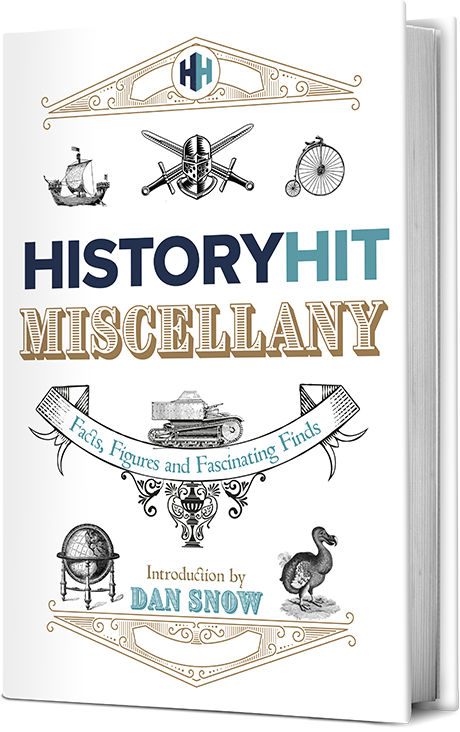
The History Hit Miscellany of Facts, Figures and Fascinating Finds
Thomas Cook and the Invention of Mass Tourism in Victorian Britain


Harry Sherrin
03 mar 2022.

After its inception in the mid-19th century, the travel agency Thomas Cook pioneered the development of mass tourism, launching the world’s first travel guidebooks, package holidays and round-the-world tours.
Thomas Cook grew from humble beginnings, carrying temperance activists to meetings by train in the English Midlands, into a vast multinational company. In the 19th century, its tours catered to increasingly wealthy Victorians during the height of the British Empire , successfully championing a travel revolution.
But in 2019, Thomas Cook declared bankruptcy. It was the world’s oldest and longest-serving tour operator at the time, having existed for more than a century and a half and endured world wars, economic crises and the rise of the internet.
Here’s the story of Thomas Cook and the advent of global mass tourism.
Temperance trips
Thomas Cook (1808-1892), a devout Christian and advocate of the temperance movement, organised a one-day rail excursion for a temperance meeting in 1841. The trip, on 5 July, involved a train journey between Leicester and Loughborough, courtesy of an arrangement with the Midland Counties Railway Company.
Cook continued this practice over the following years, organising railway journeys for temperance activist groups around the Midlands of England. In 1845, he organised his first for-profit excursion, in the form of a trip to Liverpool for passengers from three locations – Derby, Nottingham and Leicester.
For this tour, Cook crafted a passengers’ handbook, now widely considered a precursor to the popular travel guidebook that would be produced to accompany travel excursions for decades to follow.
Branching out to Europe

English tourist agent Thomas Cook and party in the ruins of Pompeii, Easter 1868. Cook is seated on the ground, just to right of center, in this carte-de-visite photograph.
Image Credit: Granger Historical Picture Archive / Alamy Stock Photo
By the 1850s, Cook had his sights set further afield than England. For the Paris Exposition of 1855 , for example, he organised guided trips from Leicester to Calais.
That same year, he also oversaw international ‘package’ tours, carrying parties from England to various cities in Europe, including Brussels, Strasbourg, Cologne and Paris . These excursions offered passengers everything needed to sustain them on their journeys, including transport, accommodation and meals.
By the 1860s, Cook’s sporadic temperance trips had grown into a profitable mass tourism operation – thought to be the first in global history. In response to his newfound success, Cook opened his first high-street store in London’s Fleet Street in 1865.
That same year, the London Underground opened as the first subterranean railway in the world. London was the most populous city on the planet at the time, and the enterprises of the British Empire saw wealth pouring into mainland Britain. With this came disposable income and, by extension, more Britons willing to spend large sums on international holidays.
For Cook, business was booming.
Going global
After tackling Europe, Thomas Cook went global. Now a father-son business comprising Thomas Cook and his son, John Mason Cook, the tour agency launched its first US tour in 1866. John Mason guided it personally.
A few years later, Thomas Cook escorted passengers on the company’s first trip to North Africa and the Middle East, stopping in Egypt and Palestine.
Tourism for Britons at the time was intimately tied to the endeavours of the British Empire. As British armies entered Egypt and Sudan in the late 19th century, so too did tourists, traders, teachers and missionaries, eager to capitalise on the newfound accessibility of far-flung nations and the relative safety offered by the presence of British forces there.
Thomas Cook and Son was even responsible for delivering military personnel and mail to British Egypt in the late 19th century.

1872 marked a huge moment in the history of Thomas Cook and indeed global tourism. That year, Thomas Cook escorted the first known round-the-world tour. The lengthy excursion, which lasted more than 200 days and covered nearly 30,000 miles, was targeted at wealthy Victorians – those with the time, funds and proclivity to see the world’s many cultures.
In that decade, Thomas Cook also helped invent the traveler’s cheque: the company offered a ‘Circular Note’ to its passengers which could be exchanged for currency around the world.
In the 1920s, Thomas Cook and Son launched the first-known tour through Africa. The excursion lasted some 5 months and took passengers from Cairo in Egypt down to the Cape of Good Hope.
Conquering air and sea
John Mason Cook took over primary leadership of the company in the 1870s, overseeing its continued expansion and the opening of various new offices around the world.
With this expansion came the launching of Thomas Cook’s company-owned steamers in the late 19th century. In 1886, a fleet of luxury steamers opened to passengers, offering cruises along the Nile.

A Thomas Cook flyer from 1922 advertising cruises down the Nile. This kind of travel has been immortalised in works such as ‘Death on the Nile’ by Agatha Christie.
Image Credit: Wikimedia Commons
Thomas Cook eventually took to the skies in the 1920s, overseeing its first guided tour involving air travel in 1927. The trip carried 6 passengers from New York to Chicago, and also included accommodation and tickets for a Chicago boxing fight.
Into the modern era
During World War Two , Thomas Cook was briefly enlisted to assist with the ‘enemy mail service’, essentially the covert delivery of post from Allied regions to occupied territories.
The company went on to change hands several times during the 20th century, yet it managed to stay afloat despite various buyouts, economic crises and the rise of online travel agents.
In 2019, Thomas Cook was handed a bill of some £200 million by the Royal Bank of Scotland and other financial institutions. Unable to source the funds, the company declared bankruptcy.
At the time, Thomas Cook was responsible for more than 150,000 holiday-goers abroad. When the company collapsed, new arrangements had to be made to return every stranded customer home. The UK Civil Aviation Authority, which assisted with the repatriation efforts, called it the largest-ever peacetime repatriation in British history.

You May Also Like
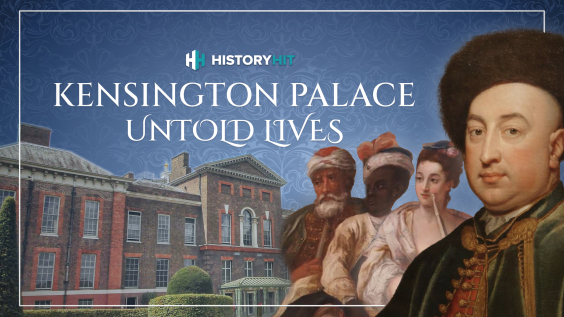
Mac and Cheese in 1736? The Stories of Kensington Palace’s Servants
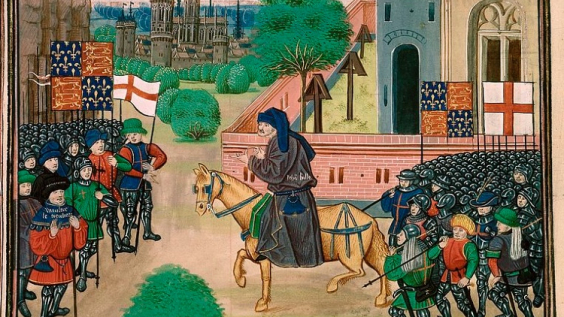
The Peasants’ Revolt: Rise of the Rebels
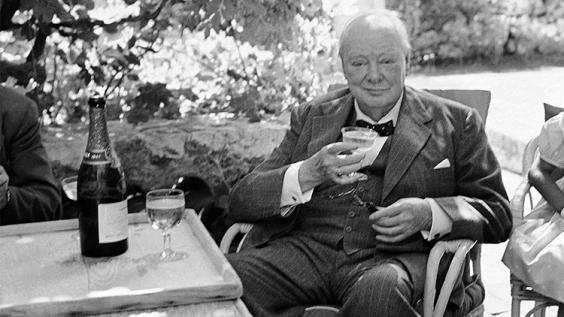
10 Myths About Winston Churchill
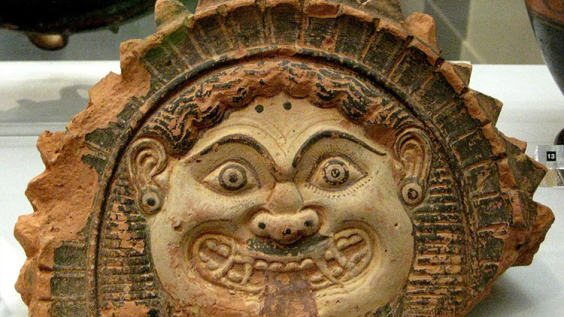
Medusa: What Was a Gorgon?
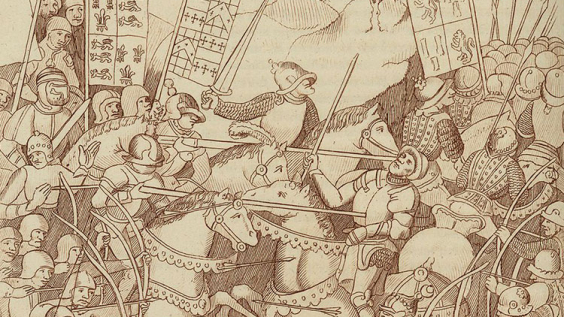
10 Facts About the Battle of Shrewsbury
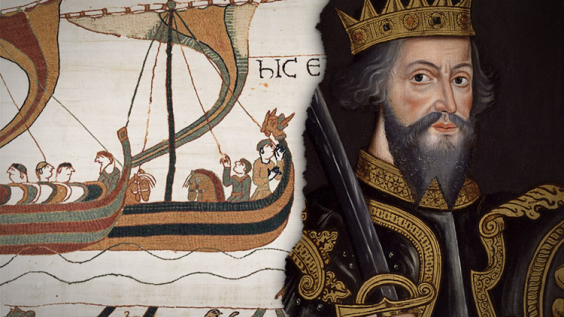
5 of Our Top Podcasts About the Norman Conquest of 1066
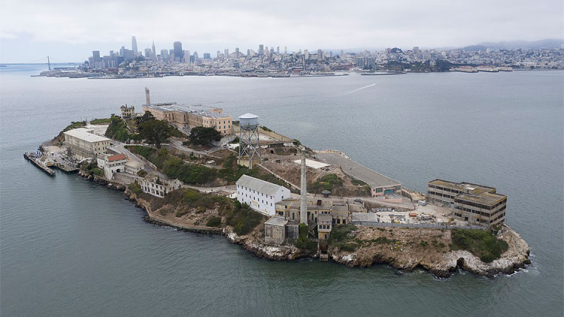
How Did 3 People Seemingly Escape From Alcatraz?
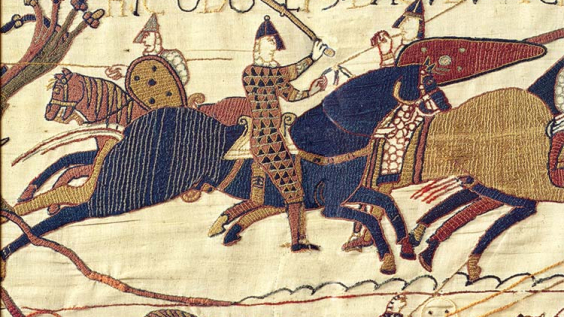
5 of Our Top Documentaries About the Norman Conquest of 1066
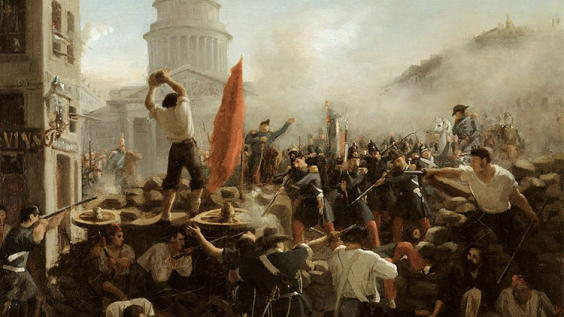
1848: The Year of Revolutions
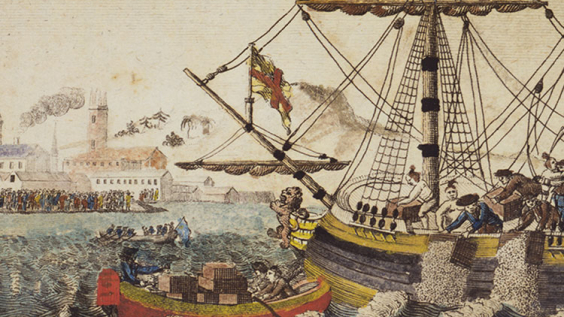
What Prompted the Boston Tea Party?

15 Quotes by Nelson Mandela

The History of Advent

The fascinating history of Thomas Cook
Disclaimer: Some posts on Tourism Teacher may contain affiliate links. If you appreciate this content, you can show your support by making a purchase through these links or by buying me a coffee . Thank you for your support!
The history of Thomas Cook plays an important role in the growth and development of the tourism industry. Thomas Cook is (or was) one of the biggest names in travel. Without this company the tourism industry wouldn’t look the way that it does today!
In this article, we take a look at the history of Thomas Cook in order to understand why this company is such an important part in the overall history of tourism .
The history of Thomas Cook: the very beginning
Thomas cook’s first excursions , the history of thomas cook & son, moving further afield , the history of thomas cook’s other successes , the modern history of thomas cook, the 1980s onwards, the collapse of thomas cook, the future of thomas cook, history of thomas cook: further reading.
Thomas Cook wasn’t just a company- there was a face behind the name! Thomas Cook himself was born in 1808 in Melbourne, Derbyshire, in the UK.
Business-minded from an early age, he started working for a local gardener at the age of 10. He earned six pence per week. At 14 he started an apprenticeship with his uncle, John Pegg, and worked for five years as a cabinet maker. He also became a Baptist missionary in 1826, touring the area as a village evangelist.
Later, in 1832, Thomas Cook moved to Market Harborough. On New Year’s Day 1833 he took the Temperance pledge. This meant he was part of a movement against the consumption of alcohol. Cook hosted meetings and held anti-liquor processions.
While walking to a Temperance Society meeting, Thomas Cook had an idea.
He decided, due to the extended Midland Counties Railway, that he would take a group of his fellow campaigners from Leicester Campbell Street Railway Station across to Loughborough to attend a teetotal rally. It was an 11 mile distance.
On July 5th 1841, Cook took around 500 people to this rally. They each paid one shilling for the privilege of a return journey with food and entertainment. He saw an instant demand for more of the same and the history of Thomas Cook begun…

Over the next few years Cook planned and executed various excursions.
In August 1845 he took a group from Leicester to Liverpool, having visited himself beforehand to arrange deals with hotels and restaurants as part of the overall trip experience for his clients.
In 1846 he arranged for 350 people to travel from Leicester to Scotland.
Then in 1851, Cook took 150,000 people to the Great Exhibition in London.
And four years later he arranged his first ever trip abroad. This was a grand circular tour of Belgium, Germany and France with the final stop being Paris for a special exhibition.
Keep reading and you’ll see that the history of Thomas Cook and the history of tourism go hand in hand…
In 1865, Cook got some business premises in London on the famous Fleet Street. This was always an important through route in the city, with businesses having been established here since the Middle Ages. It eventually became the home of British national newspapers, which it remained until the 1980s.
The history of Thomas Cook as a brand was born on Fleet Street. It was an office for Cook but also a shop: it sold guide books, footwear, telescopes, luggage and other travel essentials and accessories.
Cook introduced the hotel coupon in 1868, refining the business model. Essentially, Thomas Cook had a list of businesses (hotels as well as restaurants) and customers could buy a coupons which were to be exchanged for a meal or overnight stay at one of these establishments.
Seven years after opening the Fleet Street office, in 1872, Cook decided to partner up with his son, John Mason Andrew Cook, who was already working for him. Together they renamed the travel agency to Thomas Cook & Son. John provided a lot of commercial expertise, which allowed the company to grow.
Cook also opened a temperance hotel with his wife, Marianne Mason, located above the office.

A lot was happening at once. In 1866, the year after the Fleet Street office opened, the history of Thomas Cook moved slightly further afield.
The agency launched escorted tours of the US for British travellers, and they were the first to do so! John was the one to lead these excursions, which included tours of Civil War battlefields and more.
Later, in 1871, a partnership was born: Cook, Son and Jenkins. This was with an American businessman, but it didn’t last long and is largely forgotten about.
Also in the 1870s, Thomas Cook & Sons led the first ‘round the world’ tour. It left London in late 1872 by steamship – this headed across the Atlantic. Once in America the group boarded a stage coach. They then took a paddle steamer to Japan, then travelled overland across China and India. A lengthy trip, of course, but a fascinating one nonetheless!
Learn more: Thomas Cook: 150 Years of Popular Tourism
In the 1880s, when Thomas Cook himself had retired, John and his three sons grew the company even more. They were involved with military transport while organising tours to and of the Middle East; in 1884, the British army were transported up the Nile by Thomas Cook & Son – something quite big for the business!
By 1888, there were offices around the world. The history of Thomas Cook is one that started in Leicester and before long, was present in Australia , New Zealand and many other far-flung corners of the globe.
There are plenty of other things that Thomas Cook as a brand introduced to the travel industry .
For example, in 1874, Cook introduced something he called ‘circular notes’. These were essentially early travellers’ cheques, which offered people a secure was of using currency abroad without having to carry large amounts of cash around at any one time. The idea went on to be really popular.
Cook’s Continental Timetable launched in 1873 as a quarterly publication. It moved to being published monthly later, in 1883, and is now known as the European Rail Timetable . It was proposed by Thomas Cook employee John Bredall who thought it would be wise to publish a compendium of timetables for steamships and trains across the European continent . A softcover book, it shows all major lines and most minor lines too. Publishing was suspended in August 1939 due to World War II, and it picked up again during 1946.
It is still published today under its new name – but Thomas Cook stopped publishing it in 2013. A new company, European Rail Timetable Ltd, was born; owned by John Potter, a former member of editorial staff for the timetable, it still makes the book today. This is alongside the digital version which launched in 2016. The timetable comes highly recommended by tourists and business travellers as well as book shops, librarians, travel agents and high-profile travel writers.
What started as a family business didn’t stay that way. During the Edwardian times, travel became a much more popular activity and the business (now being run by John Mason Cook’s sons) was going extremely well. However, they sold the business to Compagnie Internationale des Wagons-Lits et de Grandes Express Europèens in 1928. This was the company who operated the Orient Express.
During World War II, however, the Paris HQ of Wagons-Lit was taken by the Germans after the Fall of France. The British assets were also taken over – by the Custodian of Enemy Property, who handled property claims created by war. Later, in 1942, Thomas Cook & Son was sold to Hays Wharf Cartage Company, which led to the company (Thomas Cook) being nationalised in 1948. It was part of the British Transport Commission.

In the 50s, the history of Thomas Cook and package holidays was solidified. The worked with scheduled (charter) airlines to sell all-inclusive tours to foreign destinations such as France, Italy , Switzerland and Spain. However these trips weren’t particularly cheap as the company didn’t want to compromise on quality. This led to a loss in share prices, and eventually the company was denationalised again in 1972.
It was now owned by a consortium made up of Trust House Forte, Midland Bank and the Automobile Association. Five years later in 1977, Midland Bank acquired sole control of the Thomas Cook and started to move administrative functions to Peterborough. By this time, the company was no longer known as Thomas Cook & Son, Ltd. It was now Thomas Cook Group Ltd.
It was during the 80s that Thomas Cook was really successful in the US. This was partly due to the aforementioned travellers’ cheques, and a whole US division of Thomas Cook was eventually sold for $1.3 billion in 1989.
During the 90s, Midland Bank was acquired by HSBC. They sold the Thomas Cook company to WestLB, a German bank, and the charter airline LTU Group. Amex bought the corporate side of things in 1994, and in 1999 the Carlson Leisure Group merged with the Thomas Cook Group Ltd.

By this time Thomas Cook had become a household name. They thousands of travel agencies and tour operators in the UK and partnerships around the world. The organisation demonstrated both vertical and horizontal integration , meaning that they had a significant market share and control over the market. There were many subsidiaries of Thomas Cook too.
Most recently in 2019, Thomas Cook collapsed.
The collapse of Thomas Cook led to various holidaymakers having to be repatriated and thousands of future holidays being cancelled. There were many potential causes of the collapse: Brexit uncertainty, of course, as well as high fuel costs, terrorist attacks and more. Hays Travel acquired all 555 of the UK Thomas Cook stores and were able to save around 2,500 jobs.

The collapse of Thomas Cook shocked the world. The history of Thomas Cook was long and the company had established itself as a key player in the tourism industry marketplace. There is not one reason why the company collapsed, but rather a plethora of reasons. Perhaps they were not innovative enough in their thinking.
They could have implemented more niche tourism products and focussed less on mass tourism , for example, as there is clear evidence that consumers have been moving in this direction for some time. But hindsight is a wonderful thing I guess, and we will never know what ‘could have been’.
So does Thomas Cook have a future? Well, maybe- but not in the same way that we have known and loved Thomas Cook.
While 2020 was been a disastrous year for much of the travel industry, it did see the ambitious relaunch of Thomas Cook Tourism by Fosun International, an online travel company with 50 employees.
Fosun was already a Thomas Cook shareholder. The company paid around £11 million for the company trademarks, social media accounts and websites in November 2019. There is certainly a lot of scope for online. products and services in the future, so we will see what the future has in store for the new ‘Thomas Cook’, it will be interesting to see how this new venture pans out…
If you want to learn more about the fascinating history of Thomas Cook, I recommend the following resources:
- Thomas Cook: The Holiday Maker
- Thomas Cook: 150 Years of Popular Tourism
Liked this article? Click to share!

IMAGES
COMMENTS
Thomas Cook (22 November 1808 – 18 July 1892) was an English businessman. He was best known for founding the travel agency Thomas Cook & Son. He was also one of the initial developers of the "package tour" including travel, accommodations, and the like.
Although Thomas Cook & Son would thrive and go on to become one of the largest travel agencies in the world, things did not work out as well for Cook in his personal life. Thomas’ father died when he was very young as did his stepfather, and young Thomas was left to be raised by his widowed mother.
Thomas Cook (born November 22, 1808, Melbourne, Derbyshire, England—died July 18, 1892, Leicester, Leicestershire) was an English innovator of the conducted tour and founder of Thomas Cook and Son, a worldwide travel agency. Cook can be said to have invented modern tourism.
Thomas Cook & Son, founded in 1841 by Thomas Cook, is recognized as one of the earliest travel agencies. Initially focusing on organizing railway outings, the agency later expanded its services to include international travel. Growth and Globalization:
Thomas Cook, who is regarded as the founder of tourism, was born into a working-class family in central England. Yet, with drive and a keen business sense, he started one of the first travel agencies in history.
Thomas Cook was born on November 22, 1808 in the town of Melbourne in Derbyshire (United Kingdom). His name is well known in the world of travel and tourism for founding the first...
After its inception in the mid-19th century, the travel agency Thomas Cook pioneered the development of mass tourism, launching the world’s first travel guidebooks, package holidays and round-the-world tours.
The history of Thomas Cook plays an important role in the growth and development of the tourism industry. Thomas Cook is (or was) one of the biggest names in travel. Without this company the tourism industry wouldn’t look the way that it does today!